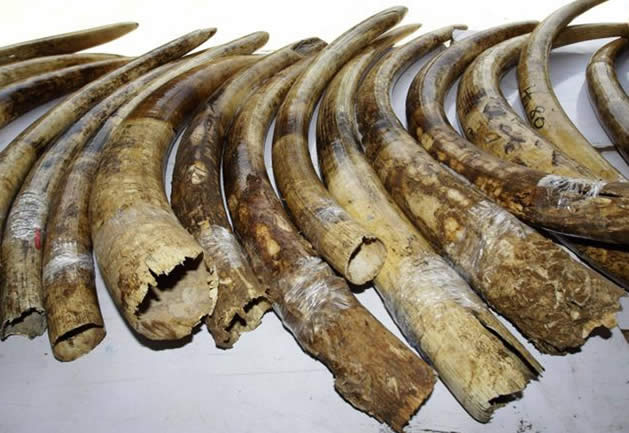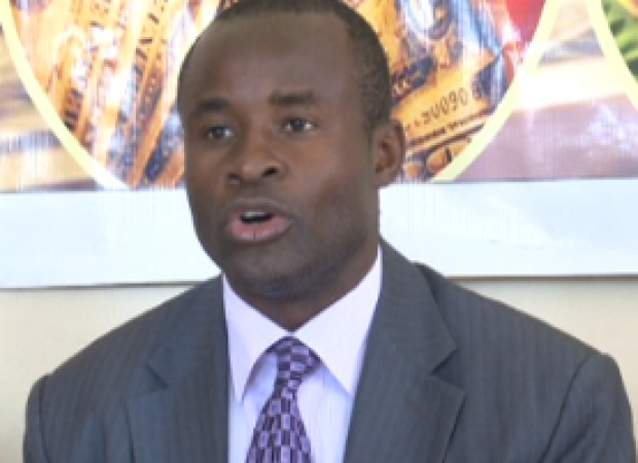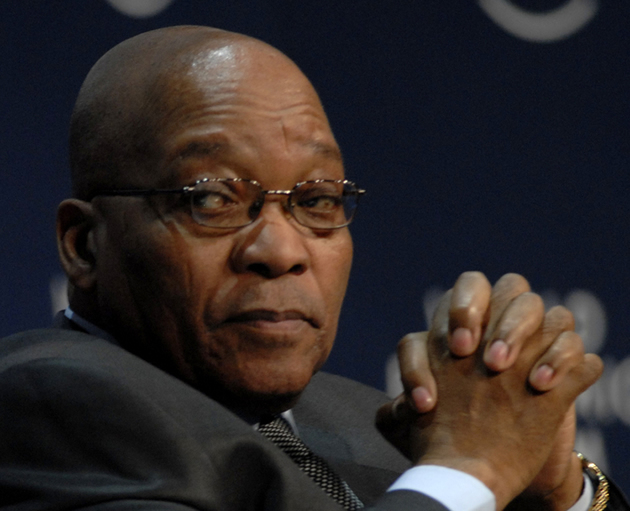Coal, Land, Platinum: Stewardship thrice failed

Nathaniel Manheru The Other Side
I am trying to visualise President Mugabe sunk in an EU conference chair in Brussels, listening to the following words from one Mr Di Rupo: “We cannot tolerate that some are denied their rights and persecuted for their origins, sexual orientation, their religion and their convictions.” Mr Di Rupo is no nobody. He is Belgium’s openly gay premier, something which leaves me wondering whether my use of the pronominal gender “he” is accurate, is shorn of unwanted connotations even. For all we know, Di Rupo might very well be the cooing side in the amorous gay equation that rules his passionate side! By the way, is “he” officially married, or does “he” freelance? If “he” is, then for once I will agree with the EU philosophy that spouses should be disallowed!
I mean can you imagine Mr Di Rupo or Mrs Something (nee Di Rupo) taking an open, intimate complementary kiss from her/his spouse in Sheraton’s Jacaranda Room, after a good delivery at a State Banquet thrown by the Government of Zimbabwe? Or by any African State? The world seems more and more complex by the day, with the primary, formative pronouns he/she the usage of which humanity has always taken for granted, now assuming new and unnerving semantic ranges, never mind what physical clarity bodily limbs and organs might suggest. We seem to have drifted into the age of the unconventional, the age of the womanly man and the manly woman, with neither adjective suggesting anything martial, but sexual.
The emperor’s orders
Now, can you imagine R.G. sitting nonchalantly in that European seat, taking in meekly and mutely this message from an European gay prime minister — apparently the second one on that accursed subcontinent — to say to African leaders, “please accord homosexuality the status of primary rights”, or else we, the Europeans “will not tolerate it”? And all that delivered in a tone which is decidedly peremptory, behind which lies expectations of unstinted compliance by Africans? And as always, both the antecedent postulates in this European leader’s instruction to Africans — denial of rights, persecution for origins – and closing ones — religion and convictions — are put there not for real meaning and options, but merely as props to the goal postulate, that of sexual orientation which has now become the new rights frontier for activist Europe seeking to globalise this decadent terminator culture that gay-ism is, once it is stripped bare of all its verbal adornments and pretensions.
If it was not so, why would Di Rupo fail to notice that he was yoking together incompatibles, notice that he was making a stupid argument? Surely if Africans are not denied their rights, are not persecuted for their origins, for their religions and for their convictions, then the issue of sexual orientation would not have to be inflicted on them from anywhere, let alone at such a captive summit? But then this is emperor-talk: it projects orders without countenancing any objections. Could that be why the emperor would not have First Ladies in his Court? I mean can you imagine such a message from on high, pelting ears of Africa’s First Ladies? Would all that be what African leaders would have chewed vast distances to hear?
The ruse of CAR
There is a larger point. I have googled, googled far and wide, to get some idea of what the real outcomes of the EU-Africa Summit were, are. So far I have got just two, apart from the opening and closing of the Summit itself. The first one is the Belgian Premier’s appeal for gay rights, to mum African leaders who included Presidents Museveni and Goodluck Jonathan, the two presidents who have taken a legally enforceable position on the same matter. The other outcome I met has to do with CAR, the Central African Republic, where the Europeans are reported to have undertaken to deploy a thousand soldiers and police officers. I think the more accurate way of reporting this matter is to say Europe merely used the EU-Africa summit to formalise this decision it took some time back, possibly last year, and which was tabled at the recent AU Summit held in Addis in January. So this is an old outcome reissued to suggest some bustle in the otherwise drooling tale from Brussels. And of course if you site CAR on the map, principally who its neighbours, and the fact of an Islamic element in its cocktail conflict, you will understand why it is true the EU was bound to deploy, has to deploy, EU-Africa Summit or not.
Trade figures with no bearing
Reportage which tries to suggest more material outcomes on peace and prosperity (note the nebulous theme) do in fact go back to trade statistics between the EU and Africa. Nothing wrong with that for as long as we all agree those figures are historically rooted in our colonial past, and did not need an EU-Africa Summit for them to come into being! It also helps to recall that between Lisbon in 2007 and Brussels in 2014, these figures have changed in ways traceable to deeper incorporation of the continent of Africa as a minor into the powerful or dominant western world. The indifference between these figures and pious resolutions of past Summits is truly remarkable.
The holy Belgians of yore
Talking about Belgium, I have been reading “Journey to Gubuluwayo”, itself a compendium of letters of two Catholic priests: Fathers Depelchin and Croonenberghs as they made their way to Bulawayo between 1879 and 1881. These were catholic priests of Belgian descent, who ran well ahead of Rhodes and his gang, but well after Protestant missionaries led by the London Missionary Society of Moffat, and all those who then followed him. The book is a fascinating, must-read for black Zimbabweans who wish to know where the rains began to beat us. Put together, I found letters of Father Croonenberghs quite honest and candid, quite revealing. He makes amazing admissions that seem to poke open the myth of missionary goodness and unalloyed holy pursuits in the run-up to the “opening” and occupation of Zimbabwe. Of course one has to be careful to remember that Catholic missionaries who had lost the trophy of pioneering proselytisation in Matabeleland, were very hostile to, and critical of, Protestant missionaries. That apart, Father Croonenberghs makes indicative observations.
The cross that hung out dry for gold
He gloatingly noted that Protestant missionaries had failed dismally to convert the Ndebeles and Kalangas, something which these pioneering missionaries blamed on “the character and social organisation of the Matabele”. He is himself sceptical about that, and instead writes: “I would not wish to criticise the Protestant ministers of the London Missionary Society. But these gentlemen themselves agree that their activities among the natives have been diplomatic and commercial rather than moral and religious. That may well be the reason why Lo Bengula did not worry much about allowing new missionaries and religious ministers into his country”.
Eaten by the secular
Put simply, these Protestant missionaries were punting for traders, hunters and empire-builders, than for God and his gospel. Their preoccupation were secular, or would soon become so as their days in Matabeleland wore on, each sinking them deeper and deeper into the world of Mammon and Caesar. And evidence is abundant. Charles Helms played a crucial mediation role in concessions through which our destiny was swindled. Reverend John Smith Moffat, son of Robert Moffat, who had founded Inyathi for the LMS in 1879 resigned only to become a civil servant, and even negotiated for a treaty of friendship between Lobengula and Britain. Reverend Morgan Thomas Morgan who was also part of the Matabele Mission quarreled with his fellow missionaries Sykes and Moffat over a distracting trading focus, leading to his dismissal in 1872. He then set up an independent missionary-cum-trading concern based at Shiloh, close to Inyathi. I could go on and on, to illustrate how the cross gave way to trade, gave way to hunting and empire building. Or enmeshed with all of these. But that is a story for another day.
Ecological plunder and colonisation
The story for the day relates to the same Father’s letter dated Sunday, 16 November 1879. The letter (or is it diary entry?) reads: “Commerce on a large scale seems to have greatly decreased for some time now. Five years ago, Matabeleland alone produced more than 80 000lb of elephant’s tasks, worth 6 to 7 shillings a pound (lb). They also exported a considerable quantity of ostrich feathers. At the present time it is doubtful whether the hunters succeeded in collecting 20 000lb of ivory. The elephants are moving further away. The ostriches are moving away too; besides, the breeding of these birds on farms in the Cape offers strong competition to the work of the hunters. Fearing, and not without reason, that both elephants and ostriches may disappear entirely, and take refuge on the left banks of the Zambesi, Lo Bengula has been thinking of restricting hunting permits. This idea would show quite good administrative powers and could even find its place in the realm of political economy.”
Forebears who saw
These are awesome statistics, moreso when you consider the average weight of a tusk, which was roughly between 20-25 pounds. 80 000 pounds of elephant tusks amount to a huge haul of our elephants, a real massive destruction of a key component of our national wildlife heritage. We have no studies which lay bare the cost of encroachment and colonisation from the point of view of destruction of our flora and fauna, from the point of view of our wildlife heritage. Of course then there was no CITES! But, lamentable though that is, that is not my focus.
What I found quite fascinating was the response of the Ndebele State to this destruction. It sought to introduce hunting restrictions through permits, or even outright hunting bans, both of them real novelties in the science of political economy. Two points loom large. Here is a white priest contradicting the myth and image of Lobengula as a fat, cruel and unthinking savage awaiting redemption and enlightenment from the goodly White Man. No, this African potentate was sophisticated enough to open a “new realm” in political economy! This emphatically puts the colonial mythology of the not-so-noble savage on its head, and all that done through evidence provided by a white man of the cloth!
Ruling the commons
The second point — it is staggering for me — is the realisation that the Ndebele state was alive to its economic dimensions, well beyond personal and monarchical wealth. It was acutely alive to its larger stewardship role in respect of the nation’s “commons”, exemplified by wildlife. More literature from gold hunters reveal that correspondingly, there was very stringent allocation of the State’s mineral wealth, with concessions being given parsimoniously, being policed effectively. This is a staggering consciousness, one made even more awesome by the realisation that the Ndebele Kingdom, at that point in history, was alive to the notion of sustainability in the exploitation of the environment. It was, in other words, an Economic State. What has gone wrong? Is the Ndebele State, are the Ndebeles, not part of our collective forebears?
Billy and Temba
Here is what triggers these existential questions. This week we had screaming headlines of one Billy Rautenbach, and one of our own, Temba Mliswa. The two are said to be locked in mortal combat regarding alleged breached contracts, or alleged foiled attempts at corporate swindling. I don’t know what is what, which is which. I am not so sure I care to know. Because of this story, the national opinion is divided. There are some who vehemently condemn Temba, however, much he now tries to wrap himself cosily in the national flag. He sought self-gain, and lost, and it is a bit bald to pose today as a lonely national warrior, selflessly defending the national interest. Was the nation going to realise its interest through his opulence, if this Billy guy had proved foolish or generous, or both?
But there are others who praise Temba as an empowerment warrior who dares take the war right into the belly of the swindling white man. Whatever the motive, Temba must be lauded for tackling Billy, himself a personification of continuing white power, well after Independence. The sentiment goes deeper. It pities Temba for falling victim to politics of factions, which is why and how his otherwise laudable soldiery is being impugned. Dear reader, I leave you to find a side on this sharp, polarised altercation. Again, I am not interested.
Land, coal and platinum
In both afore-summarised arguments, Billy seems out of the loop, except as the target which the martial Temba Mliswa must demolish, or as the whetstone on which to test the moral bearings of this loudmouthed, even impulsive MP. Billy comes across as a passive target, the crucible in which to test the post-independence African actor or personality. That even creates the illusion that Billy is not an actor, the actor. The illusion that Temba is, a foremost actor even, alongside a coterie of senior officials hankering to save the day, whether for Billy or for Temba. Is that the fact? Have we, as Zimbabweans grasped the true meaning of this matter, beyond persons? Here are interesting allegations.
Three key national resources are at stake: land, coal and platinum. All of them are emotive. Or should be. Two races are in the race: blacks represented by Temba and his motley crowd; Billy representing his varied and complexly configured corporate interests and permutations representing white interest. Billy, we are told, got coal concessions in the hope he would up our energy generation. Mliswa says all the coal and its by-product, coke, which Billy extracted was exported, never to redound to this economy, this country. He sold all of it abroad, with proceeds getting externalised. Temba never sought to own or exploit coal, but sought rent from those exploiting it!
Unki and Chisumbanje
Billy, we are again told, secured platinum concessions at Unki. He speculatively kept them for a while, again as told us, and then disposed of them for a whooping billion US dollars. The billion-dollar proceeds from the disposal of Unki concession is what, Temba tells us, went into building Chisumbanje, both by way of sugar plantations, and by way of the ethanol plant whose value Mliswa puts at US$650million. In between, helicopters fly and land, all the time ferrying multiracial busy bodies. The cockpit gives an illusion of multiracial actors. Ten percentage shareholding is asked and granted, but never gets honoured. In the end someone gets hurt and the deals, all along arcane, burst into the open like a long simmering but always denied abscess. But in both cases, our Temba never sought to control platinum, to own Arda land at Chisumbanje. He sought rent from those who did!
The generation that won’t see
The Herald runs the story and everyone reads: politicians and non-politicians, rulers and the ruled. They all read to be informed about what is going on, more accurately what has gone on in Jerusalem, the city of their residence. And each reading creates questions which the reader cannot answer. Much worse, the interest fizzles out, faster than the salary-gate scandals, all put together. The intensity of reading and life-span of the two stories suggest Zimbabwe has more to fear from salary-gate than from this new shares-gate saga.
Could that be true?
There is a deeper question. How do national resources get parcelled back and forth, up and down, sideways, but without those in authority knowing? For goodness sake we are talking about coal in Hwange, which is mined visibly, noisily. We are talking about a huge chunk of our platinum, billion worth, if Temba is to be trusted. We are talking about a huge swarthe of land, all now carpeted by cane whose rough “leaves” rustle so audibly in the restless national wind. It is very visible from the main road to Chiredzi. Politicians have been there. Yet all the three are unseen, undetected, unknown. It is the quarrel over a paltry US$165million consultancy fee charged by a diminutive fitness trainer, which generates enough noise for national arousal and notice. Which strains our focus. Please!
Lobengula saw well
And the focus falls of this little man called Temba Mliswa, and his faction, real or perceived. Falls on little politicians and ministers scrambling for crumbs off the rich white man’s well bulwarked table. That is what transfixes the national mind. Let me be provocative. Nowhere do white missionaries show us a Lobengula who obsessed about black acolytes of white hunters, white gold-diggers. He worried about the encroaching white man, the depletable national resource. His focus was right, substantive. He knew what threatened the national interest and confronted it, albeit with small sophistication and ever diminishing capacity. But he had read right, seen well. This is what is missing today, and the media, please help this nation focus on the real, the substantive. Government, please wake up to the economic dimensions of the State you run. Please see! Don’t be so blind. And then daft. Where were the arms of State as all this happened? Why does one white man seem stronger than a whole Government, wiser than a whole people, more deserving than our modest rent-seeking aspiration?
Pathetic stewards
Mliswa only soils our sense of morality, our collective conscience, and it is only a sense which he soils. He exposes our false moral fastidiousness, our moral emptiness and the silly bravado we show in denying, defending or policing that emptiness. But Billy Rautenbach steals a country, steals our destiny, pawns it, before selling back to us the owners, leftovers from that pillaged destiny. He robs us of a whole economy. Lobengula never got the time to shape a wildlife policy. Larger, existential events overtook him. But he, at the very least, showed a strong sense of stewardship, with a tiny fraction of the knowledge we of this generation now have.
Come to think of it, Caliban-like, we showed white gold-seekers all sites of old workings of gold, iron and coal. Early Rhodesia’s geological maps came from African knowledge. We had worked gold, worked iron, worked copper, building a formidable knowledge base. Today the white man has the knowledge, is the main actor. We do not have the knowledge, much worse even the curiosity. We do not care, we never wake up to our responsibilities of stewardship. Does this country have to know what is happening to its resources through a chance altercation between one small black man and one dribbling white man? Or from journalistic curiosity? Come on, Zimbos. We are better mheni. Simuka Zimbabwe.
Icho!














Comments